
About Rotary Club of Chaska
We are part of Rotary International, a secular, non-political, global network of 1.4 million committed individuals who volunteer their skills and resources to solve pressing issues and address community needs.
Notes From Our Most Recent Meeting
Syn Robertson – Revitalizing Veterans’ Dreams
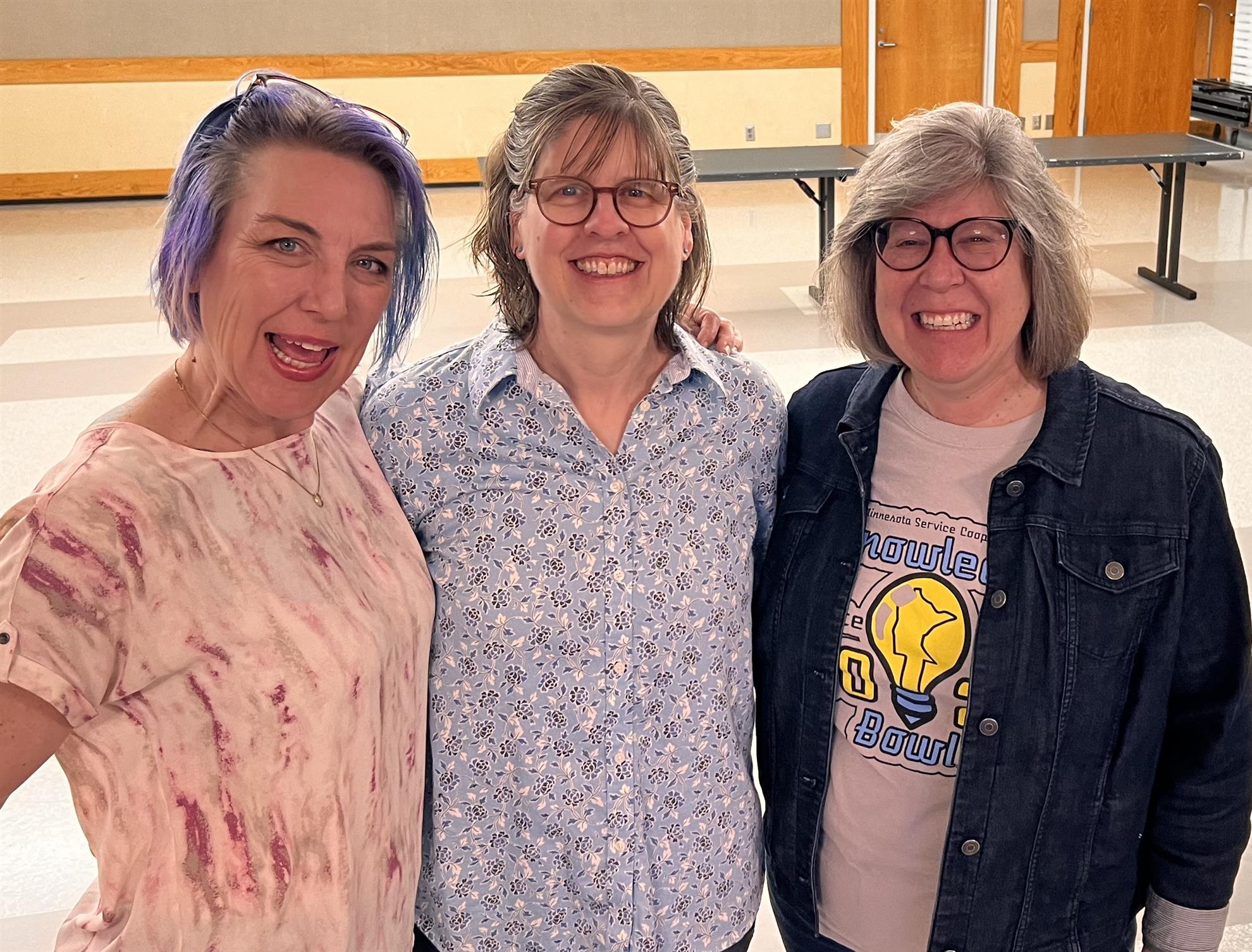
Gretchen Oppriecht’s friend Gillian Gale introduced Syn Robertson, a group fitness leader at the Chaska Community Center. Through fitness events as a baseline activity, Syn is committed to preventing veteran suicides, which have been increasing yearly. The focus on veterans is an expansion of Syn’s goal to have fitness be an integral part of everyone’s lives, regardless of current physical condition. She believes this avenue will connect with veterans’ experiences and build supports within our community to benefit the mental health of veterans and their families. Connections have been established with the VFW, American Legion and the Carver County Veteran Services Office.
Syn showed slides of events that have put those goals into actions, such as birthday boxes, post-hospital support, physical test competitions, and potluck food-sharing gatherings. On Saturday, May 25, at Veterans Park in Chaska, starting at 10 AM, Syn has organized the 2024 Memorial Workout of the Day. Link
Our help was requested for that event and other activities to “Create space for people who feel lost.” Among her efforts to achieve this, Syn also helps prepare volunteers who will be going into the Armed Services (“Boot Camp”) through a fitness improvement program.
Syn’s contact information: phone 763-442-0920; email: revitalizing.veterans.dreams@gmail.com
In the photo at the right, L to R: Syn, Gillian, and Gretchen.
Announcements

- Erin Kerber presided at this morning’s meeting at the Chaska Community Center.
- Erin and Matt Podhradsky reminded us to participate in the Tree Planting Project this Saturday, April 20, at Lion’s Park, starting at 8 AM.
- Bob Chinnock asked the STRIVE mentors to meet with the students for a year-end review after the Rotary meeting next week, April 25.
- Kevin Eide donated a plate full of muffins in case emergency rations were needed by any of our un-breakfasted members.
Tree Planting, April 20, 2024
The 25 degree windchill and occasional flakes of snow differed wildly from last year's 90 degree temps, but our Rotarians, along with help from the Lions Club and the City of Chaska, planted almost 130 trees at Lions Park.
The hearty group planted trees to replace those lost to Emerald Ash Borers and other detriments. This project resulted from ideas -- then actions -- from Dave Pokorney, Dan Keyport and Luke Melchert. A Rotary grant was added to funds from the Chaska Lions Club and the city’s budget. A multi-year plan was developed, and this is the second year of community contribution to ensure of legacy of diverse trees will be present in our parks for generations to come. Today’s goal included planting about 128 elms, maples, oaks, Kentucky coffee, and honey locusts.
We gathered in the shelter building at Lions Park and heard about the successful plantings last year from Public Works foreman Selmer Olson. Then Brian Jung the and Public Works team demonstrated the desired process of filling in the space around tree root balls, then spreading mulch. The city crews had bored planting holes, trees had been placed in the holes, and Bobcats were used to help make everything neat and deliver mulch.
Our group included:
- Viola Bavastro, her friend Ava, and Celeste Lizin, an exchange student from Belgium who brought their smiles and energy.
- Interns John Goodman and Sophia Pesina came with friends.
- Matt Podhradsky brought his sons Christian and Will.
- Erin Kerber
- Jean Heyduck
- Gary Hardel
- Matt Szybnski
- Cindy Anderson
- Andy Haugen
- Robin Nesburg
- Neil Wingert and Sarah Carlson
- Bob Roepke
Thanks to all who showed up!
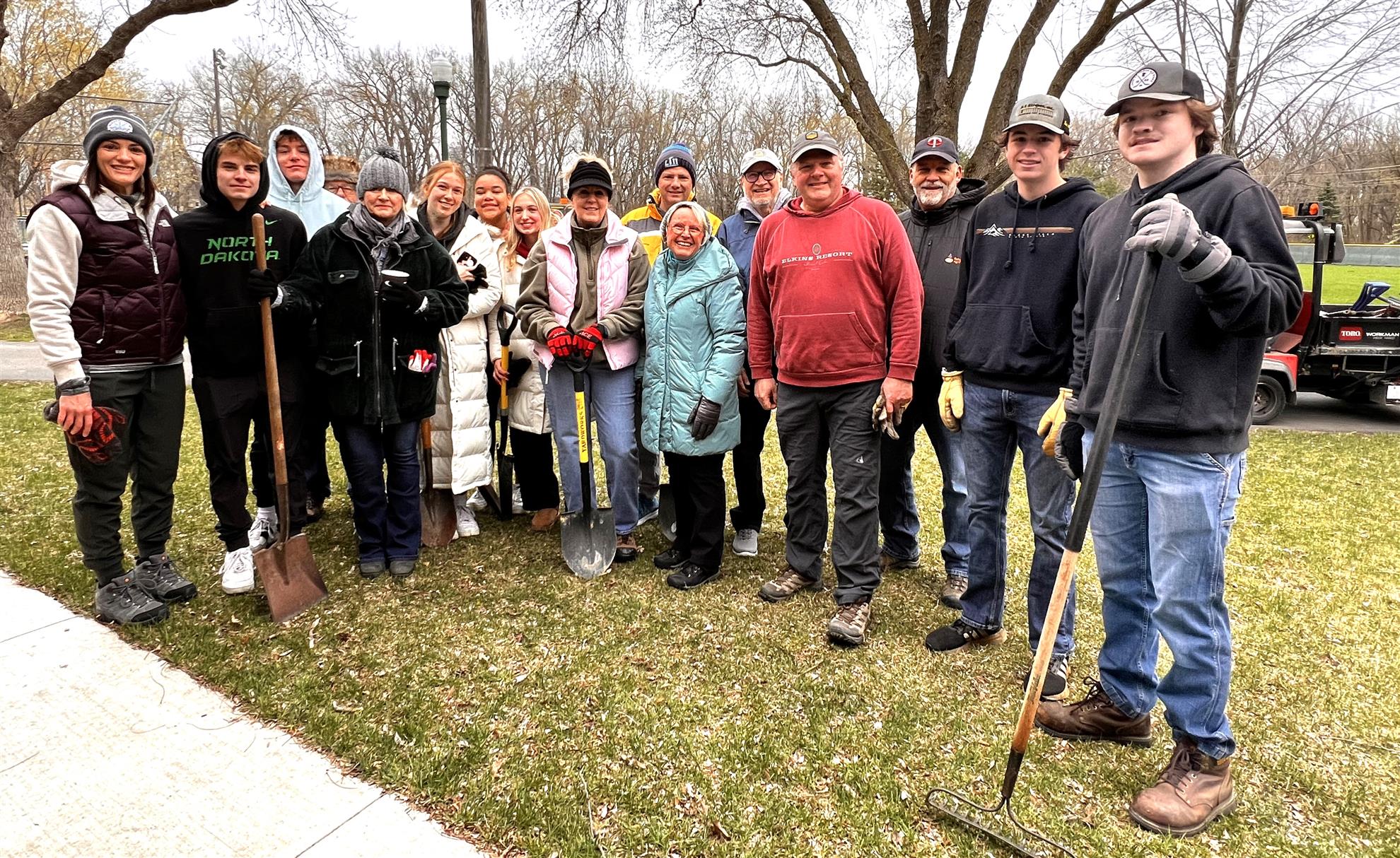
(Almost) the whole Rotary gang.
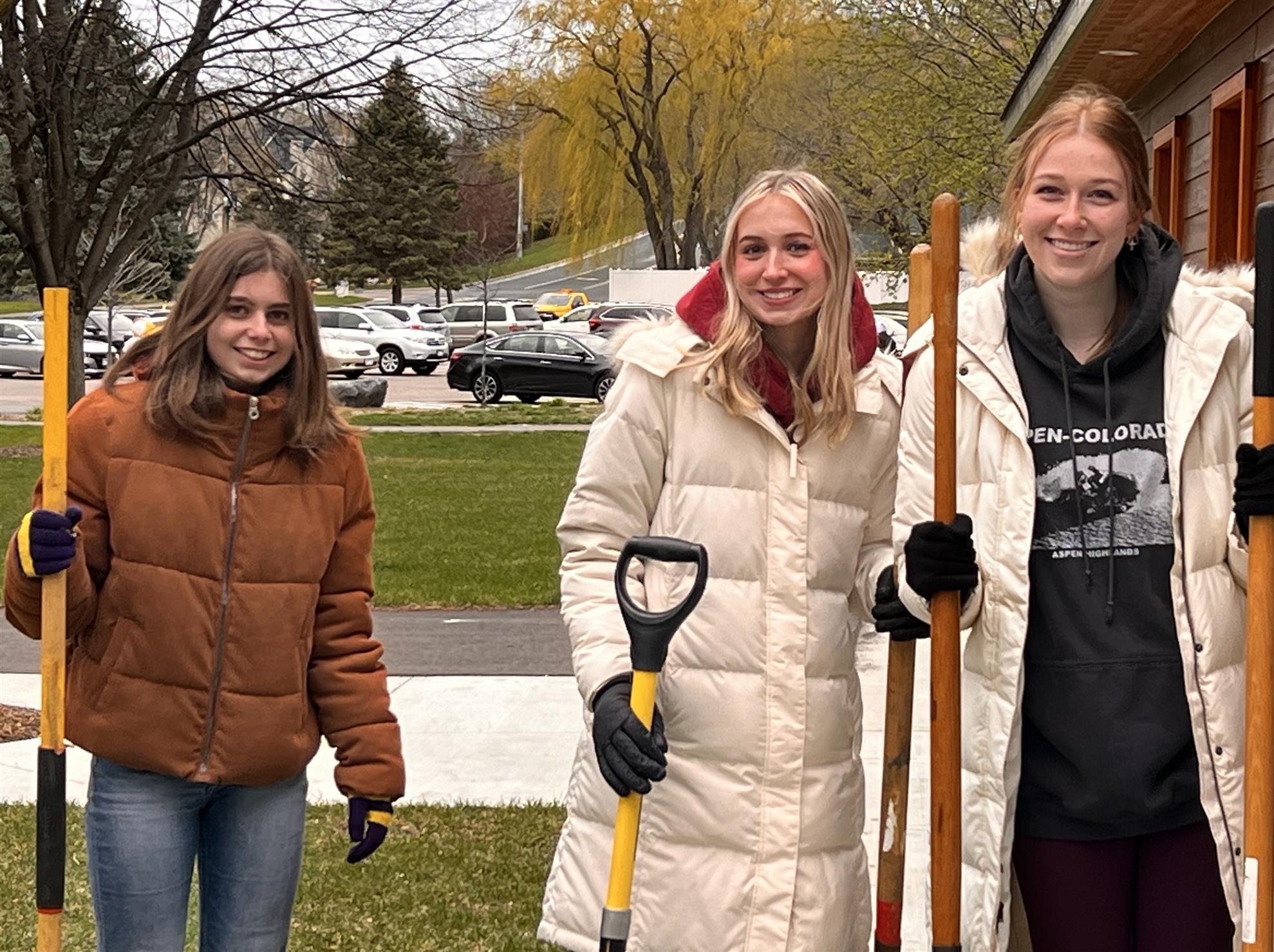
Some of our younger planters.
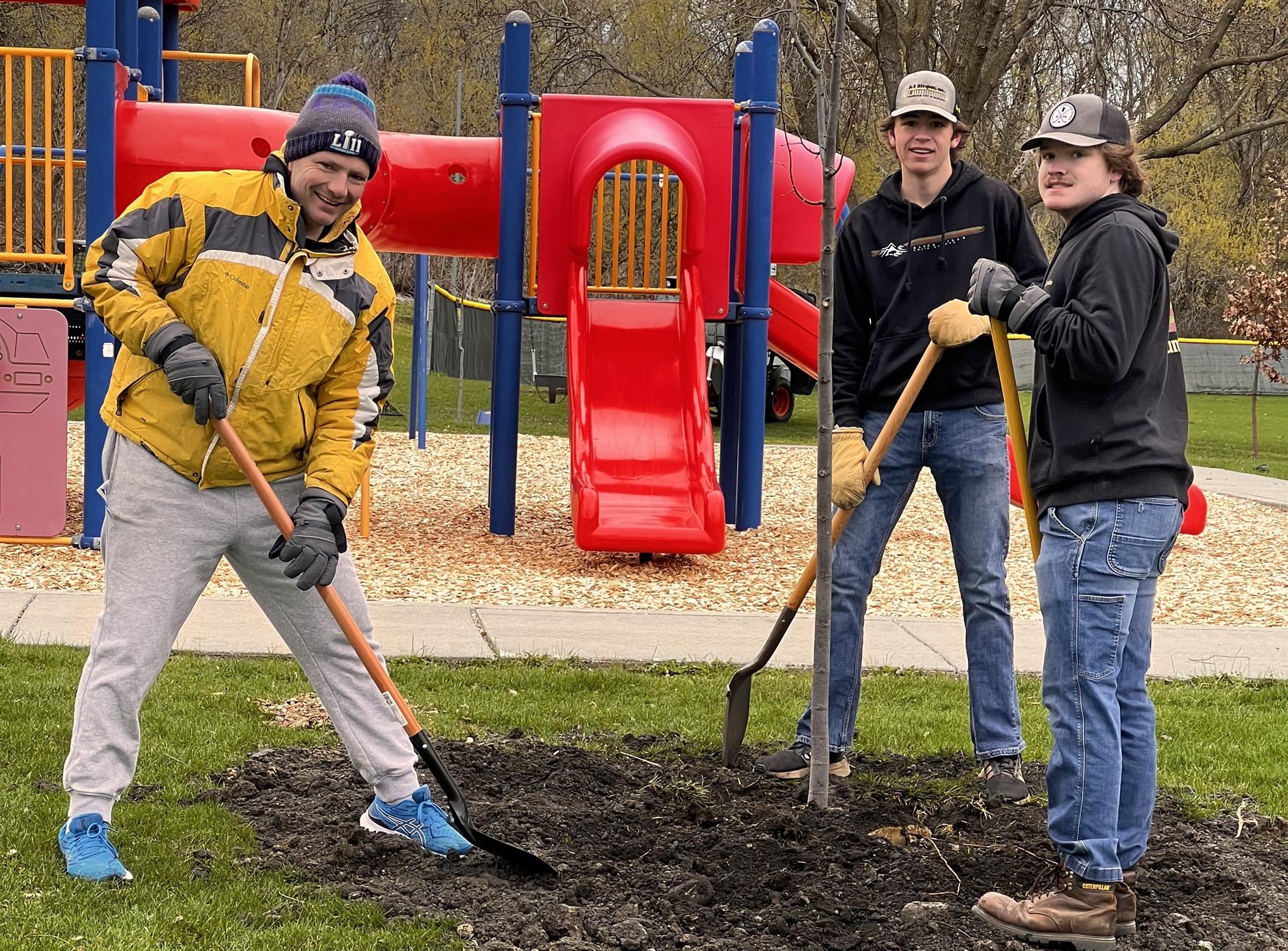
Matt shows 'em how to do it.
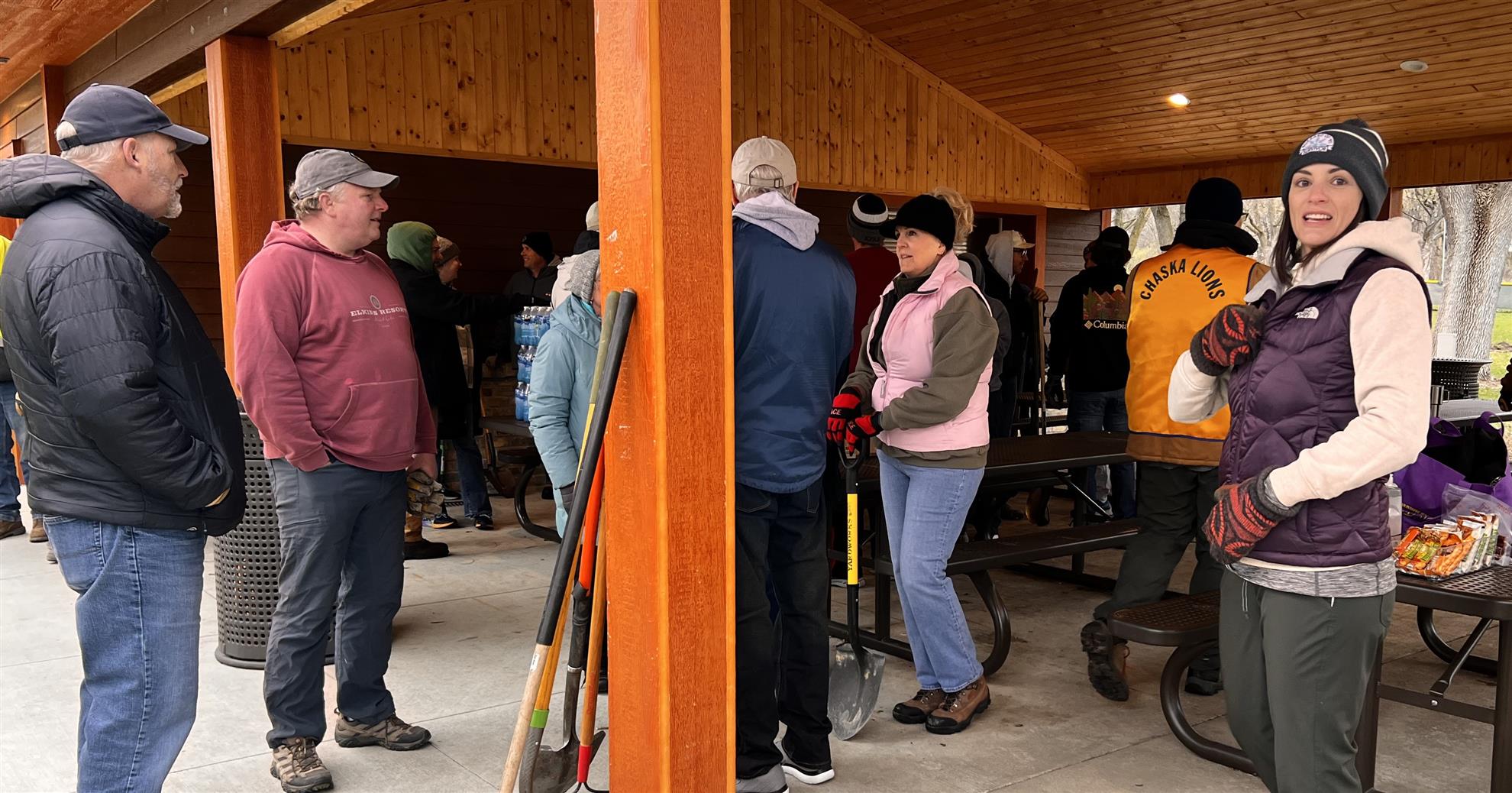
Coffee and donuts before slinging shovels.
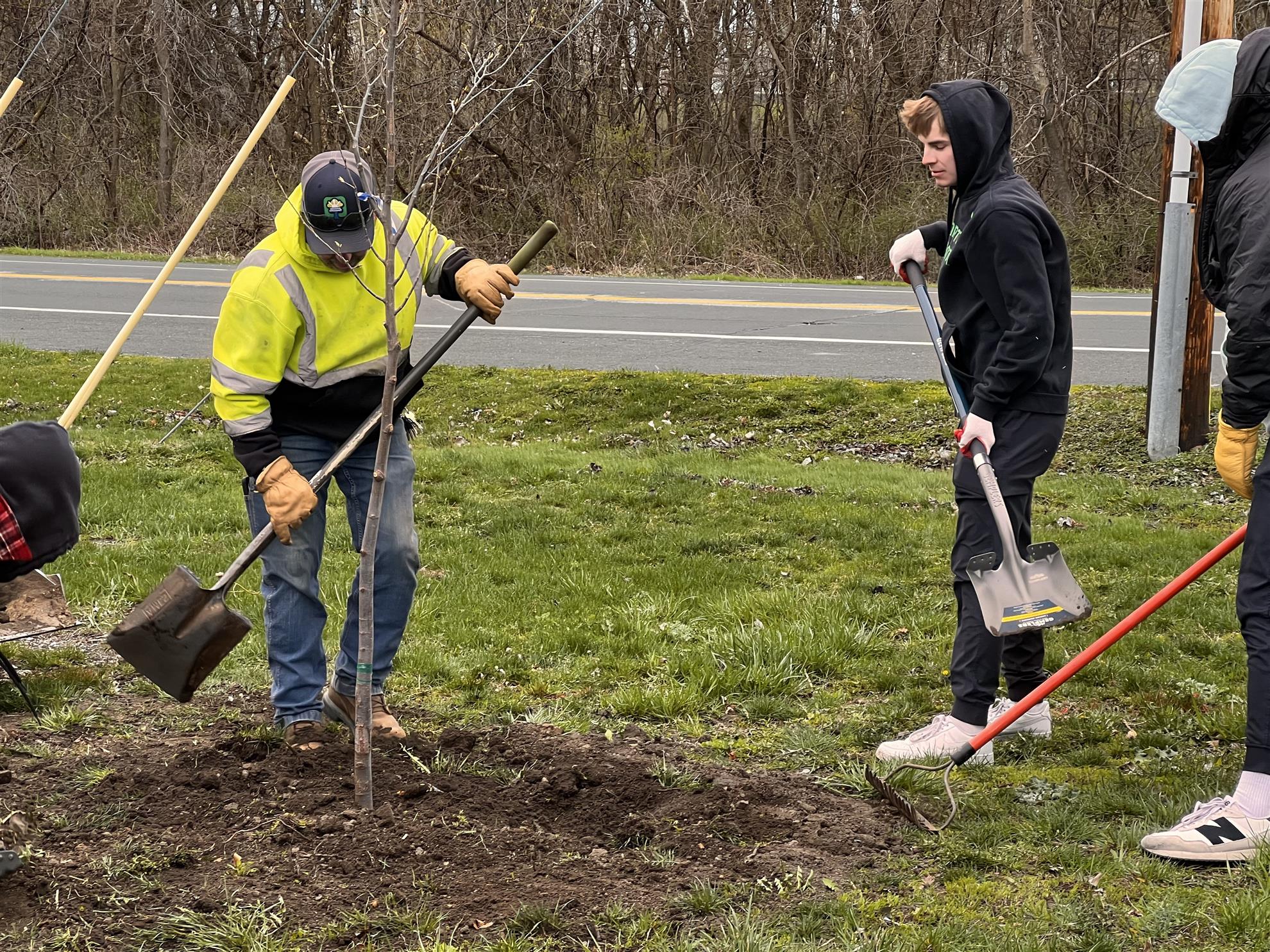
John learning how it's done.
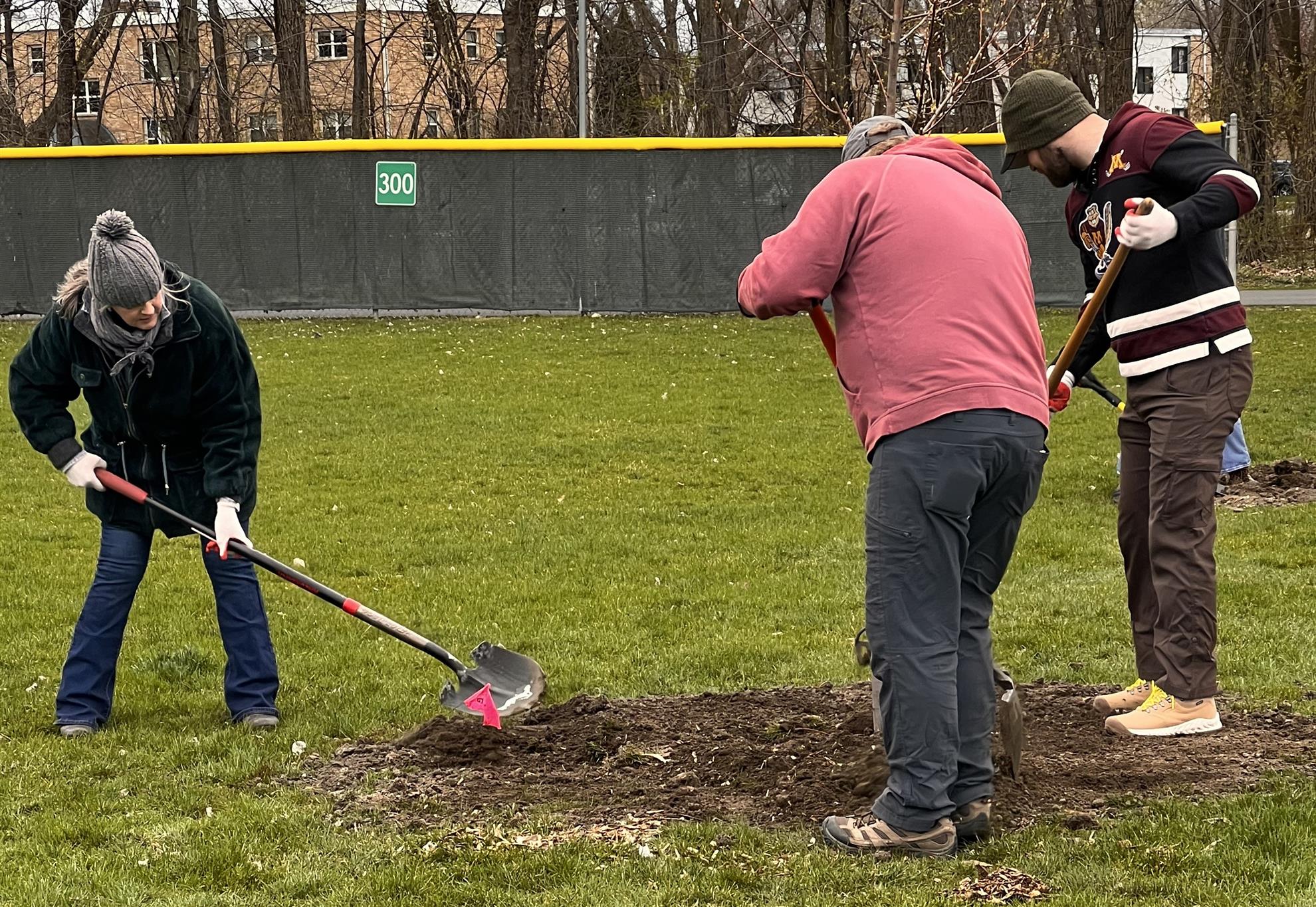
Cindy, Matt and Andy hard at work.
Exchange Student Update
Viola invited us to attend a performance of her high school play - "The Play that Goes Wrong." She has worked on the technical crew for this production, which opened April 18. Tickets are available at the door. A highlight of the past week was also entertainment-related. Viola saw the show presented at Roxy’s Cabaret in Minneapolis. With themes such as Prince and Dolly Parton, the spectacle will be easily remembered by Viola!
STRIVE Update

Mentors will meet with their students on April 25 for a year-end review.
-
Scholarship Breakfast
Apr. 25, 2024
7:30 a.m. – 8:30 a.m. -
Cinco de Mayo Breakfast
May 02, 2024
7:30 a.m. – 8:30 a.m. -
Christmas in May
May 04, 2024
-
Adopt-a-Highway & Schram Social
May 22, 2024
President
Co-President
Treasurer
Immediate Past President
Vice President
Club Foundation Chair

.png)












